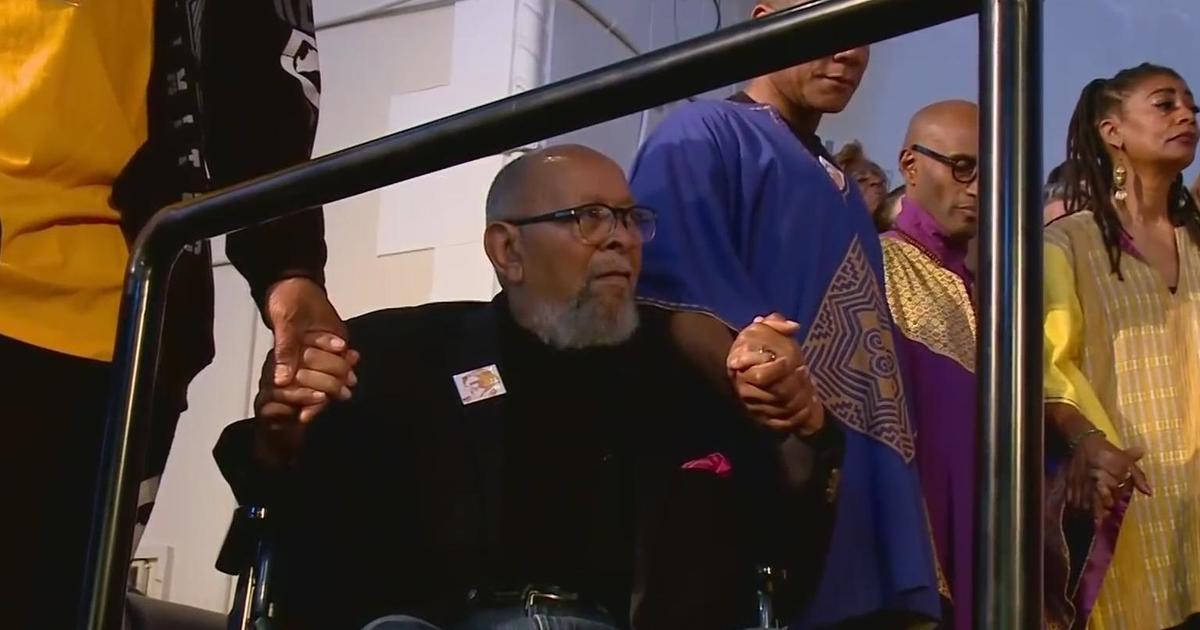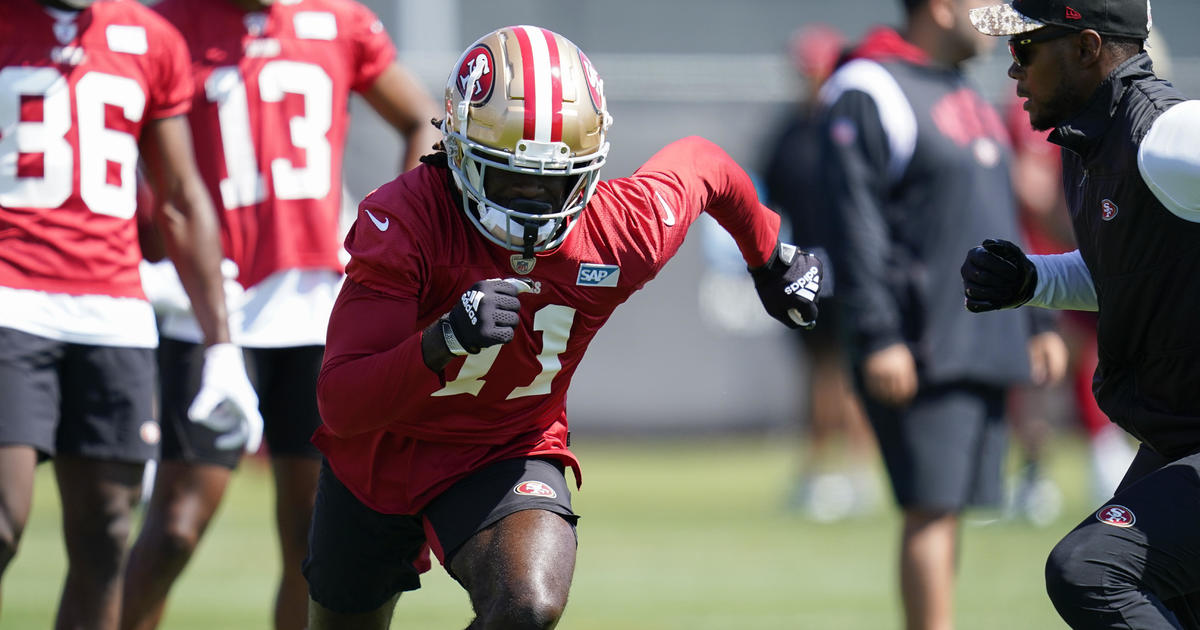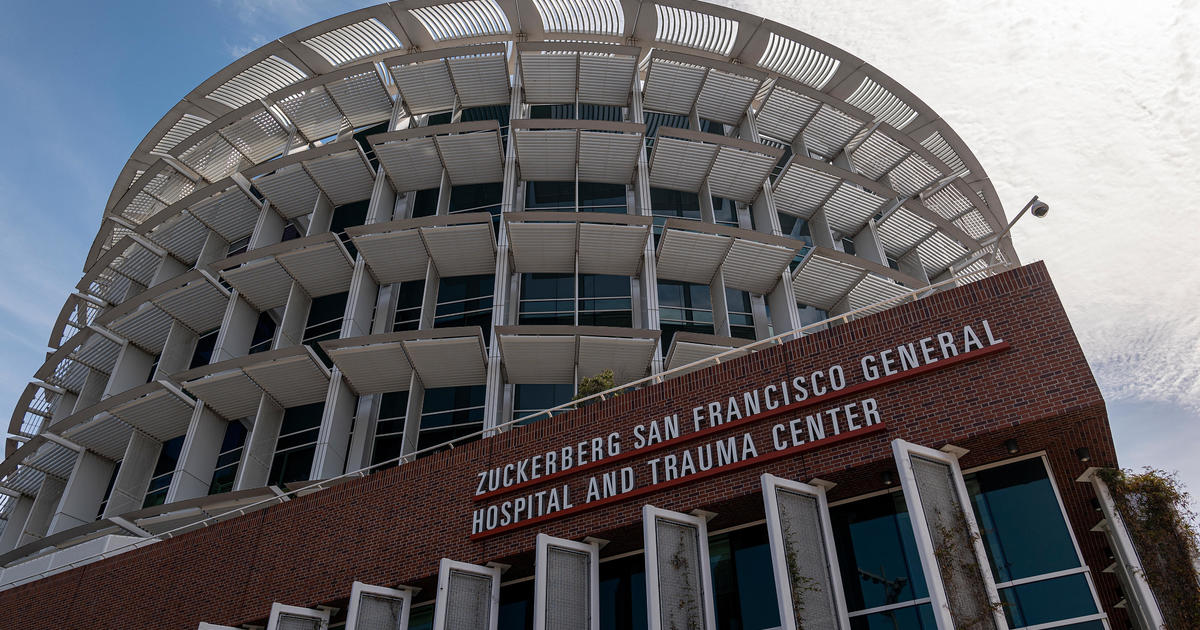COVID Vaccines: San Francisco Vaccinations Well Under Way; Nearly Complete At Laguna Honda Hospital
SAN FRANCISCO (CBS SF) -- San Francisco has begun its COVID vaccine rollout and was working to complete the vaccination of its most vulnerable group, the residents of Laguna Honda Hospital and Rehabilitation Center.
The vaccinations began Monday and by tomorrow, all 715 residents who want the vaccine and 1,000 staff members at the largest skilled nursing facility in the state will have been given their first dose of the Pfizer vaccine, Mayor London Breed said Tuesday during her weekly coronavirus news conference.
San Francisco is getting more than 12,000 initial doses from the state and federal government and is following the phased guidelines from the state about who will get the vaccine first. An estimated 80,000 people in San Francisco are included in the Phase 1A vaccine rollout, which is for health care workers and long term care residents.
Following an earlier COVID outbreak at Laguna Honda, Breed said it was the location that was feared to be the most vulnerable to another major outbreak and getting everyone vaccinated was a huge priority for the city and for her personally.
"Protecting the residents of Laguna Honda Hospital is very personal to me. My grandmother lived there for years at the end of her own life. So I know what those residents are feeling, I know what their families are feeling because they're not able to visit," said Breed. "Our fight to keep the virus out of Laguna Honda is a fight to keep these people alive until we could do what we started doing yesterday, protecting them with the vaccine."
While Breed voiced optimism with the vaccine rollout, she said there were challenging days ahead in San Francisco, and warned that health authorities won't know the full effect of holidays for the next couple of weeks.
"At this point, San Francisco and the entire Bay Area are under the stay-at-home order for the near future," said Breed. That means we have currently no control over lifting most restrictions, like those related to outdoor dining or personal services. What we do have control over is how we closely follow the health orders."
There have been a total of 24,564 COVID infections in San Francisco, with 198 total deaths. Breed said San Francisco's daily average case rate of 237 cases per day remains alarming, and with 218 people hospitalized as of January 3rd, the city has never had so many people in the hospital with COVID at one time.
"We all have a long road ahead," said Breed.
Health Director Dr. Grant Colfax said while the city has no way of monitoring the amount of vaccines sent directly to providers such as Kaiser, UCSF, Sutter Health and California Pacific Medical Center, the city's Department of Health has vaccinated more than 6,000 people, including most frontline acute care staff at Zuckerberg General Hospital and Laguna Honda.
The state is still finalizing the next phase of vaccine distribution, Phase 1B, and is working with health care providers and pharmacies to scale up delivery.
"This is an unprecedented undertaking, the mass vaccination of the entire nation to end the pandemic. We are working hard, but right now vaccine supply remains limited, and many questions remain unanswered," said Colfax. "We expect that everyone who wants a vaccine will get one eventually and we will work together as we have done throughout this pandemic to make this happen."
Both Colfax and Breed insisted that until the vaccine is widely distributed, people must still must continue the practices of avoiding gatherings, wearing masks, and postponing non-essential travel.
"Let's remember our collective actions have changed the course of the virus in March in July. We can and we will do it again," said Colfax.
San Francisco has largely been spared the type over overwhelming case surge being seen in other parts of the state, but Colfax noted that while ICU capacity in the city is in "reasonably good shape," other parts of the region and state can ask for assistance and that capacity can drop.
"Primarily, we have as a community so far, weathered the worst of surges so we simply don't have as many people proportionally in our hospital system with COVID-19 because of all the efforts that we have invested and the sacrifices we have made," he said.
Colfax said the city also has more capacity because of fewer elective surgeries during the holidays.
"We are watching that number, our capacity, very carefully. Because as the central and southern part of the state continue to experience, really a catastrophic situation, and as the region has fewer ICU beds, we would expect our local ICU bed capacity to start going down as well," said Colfax. "Obviously I hope that doesn't happen, but it certainly is plausible at this time."



